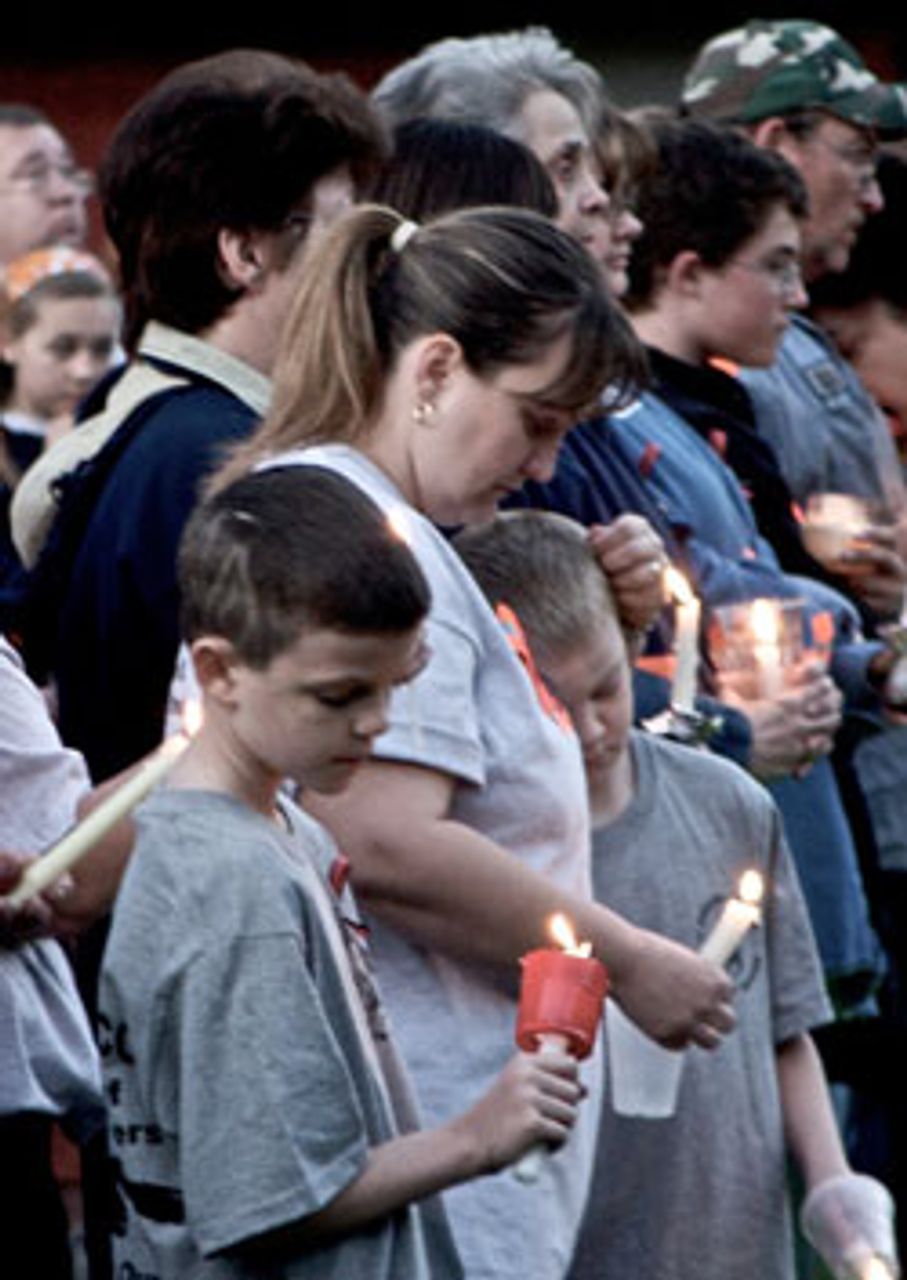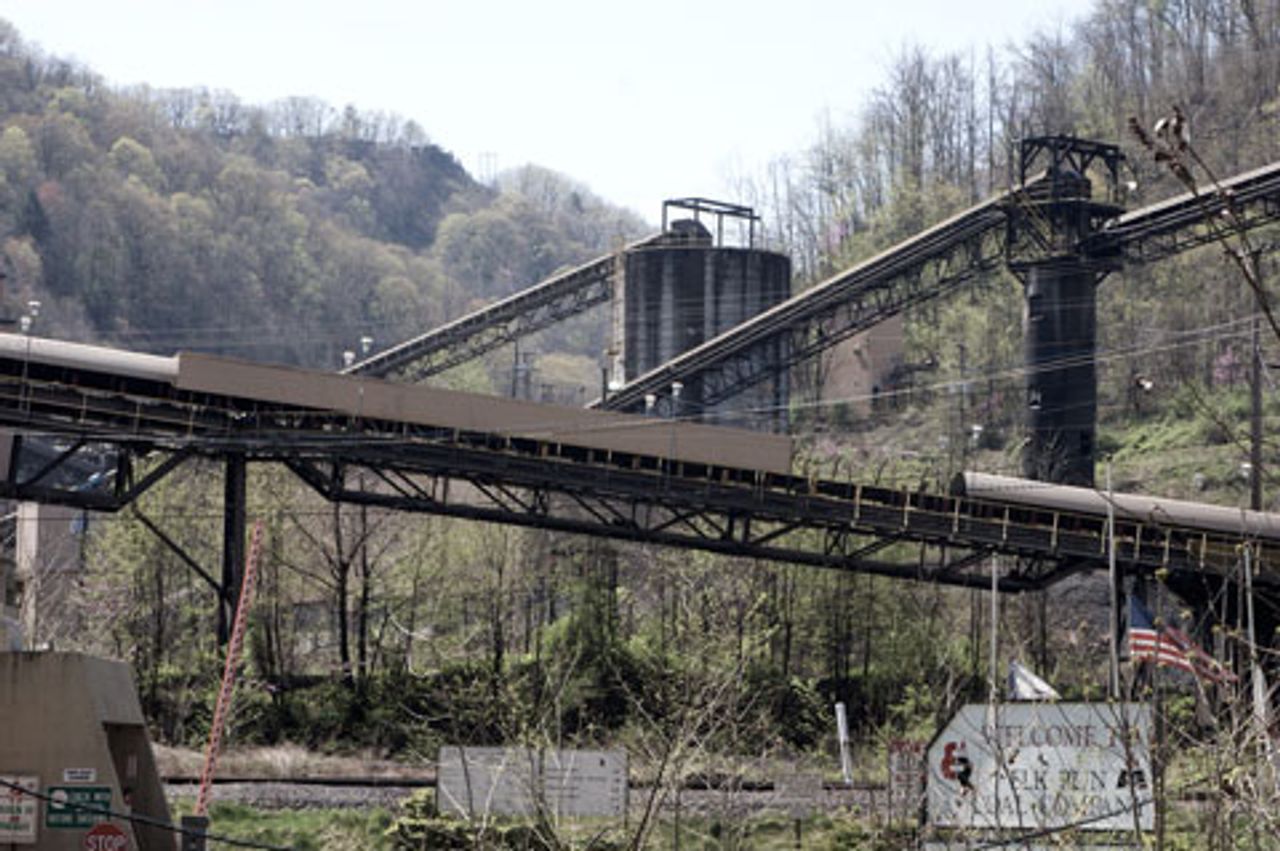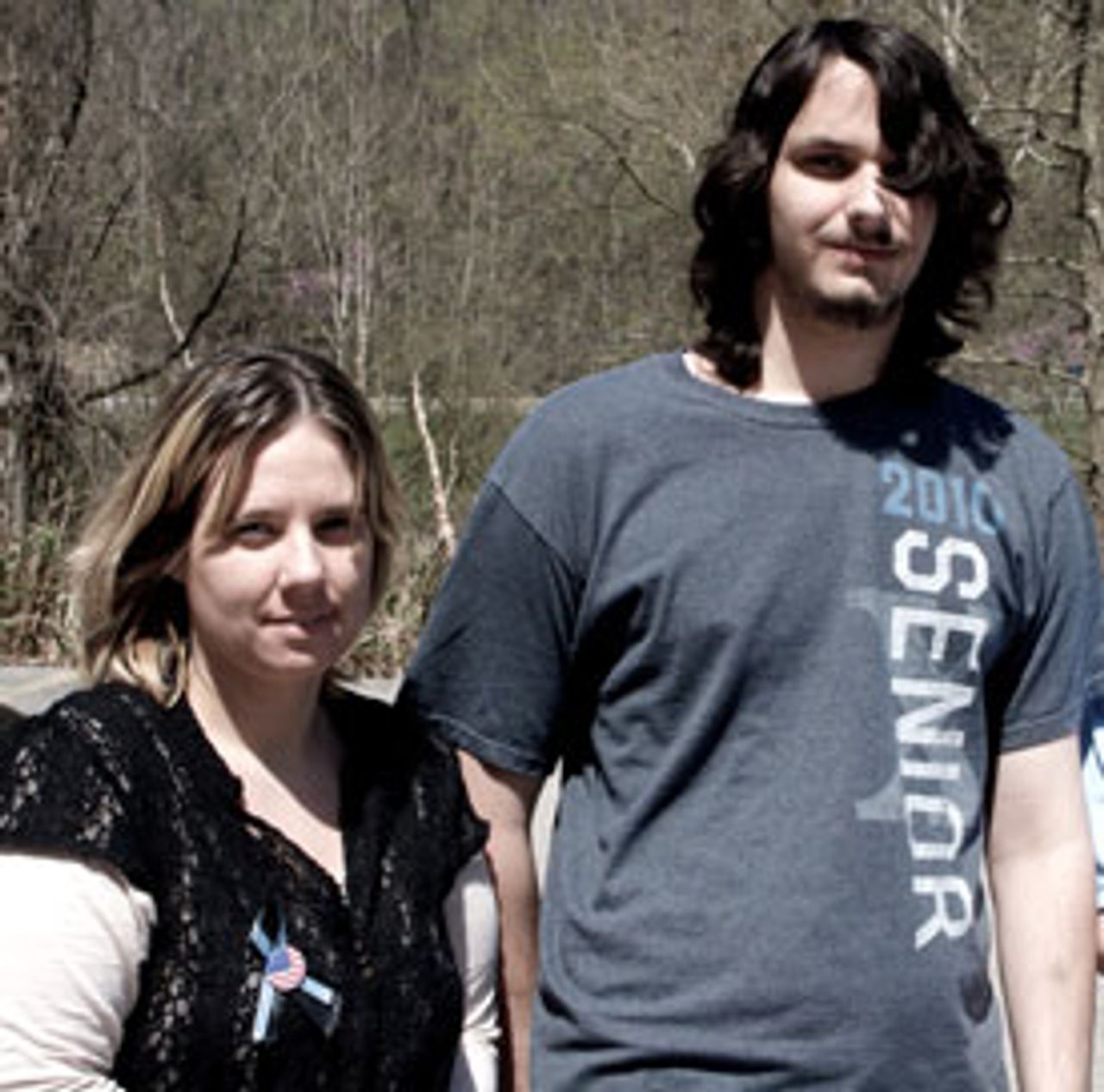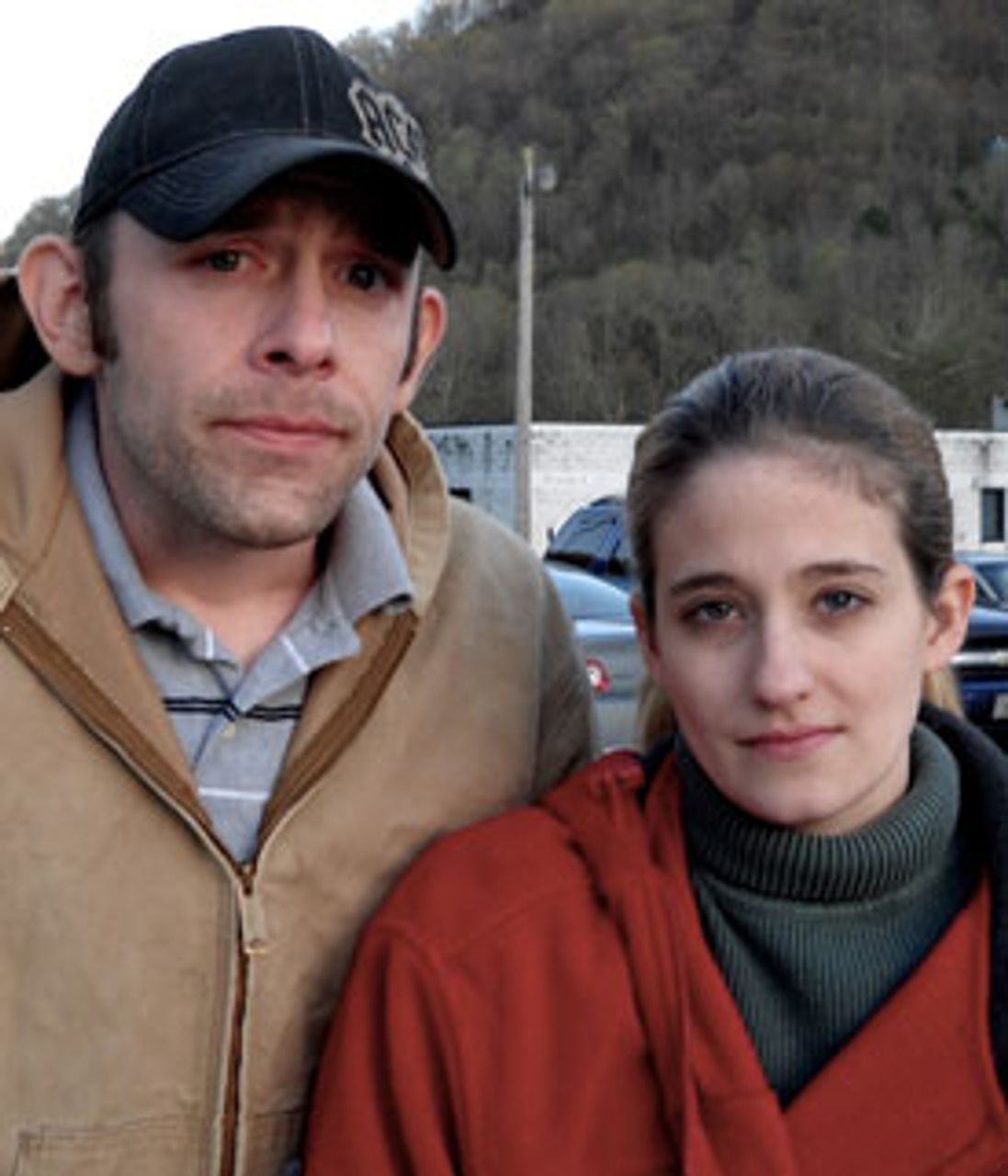For full WSWS coverage of the West Virginia mine explosion, including additional interviews with miners, click here. If you have thoughts and comments on this article, click here.
Families of workers killed in the West Virginia mine explosion are beginning to bury their loved ones, as residents speak out against Massey Energy and government regulators responsible for the disaster.
 Mourners at a vigil on Saturday
Mourners at a vigil on SaturdayIn an especially vindictive move, workers said that Massey has refused to allow miners at the company time off so that they can attend the funerals of their coworkers.
The bodies of four miners were found early Saturday morning, bringing the total number killed to 29. The final death toll makes last week’s tragedy the deadliest mine disaster in the US since 1972, when 91 workers were killed from a fire at the Sunshine silver mine in Idaho. It is the deadliest incident at a coal mine since 1970, when 38 people were killed in an explosion at a Finley Coal mine in Hyden, Kentucky.
It appeared that the miners found Saturday, like all those killed in the mine, had made no attempt to put on their rescue breathers. This means that the blast killed them almost immediately. The explosion was so powerful that it shredded railroad tracks, buckled mine barriers, and reversed the direction of ventilation fans five miles from the origin.
The size of the explosion suggests an extremely concentrated buildup of methane gas and coal dust at the Upper Big Branch mine. It exemplifies the disregard for the human lives with which Massey Energy, abetted by mine regulators, makes its profits.
The bodies of the four workers were found near the other miners. Rescuers had passed them last Monday but did not see the bodies because of smoke and debris. Two miners survived the blast. One is still hospitalized.
 A Massey mine several miles north of the Upper Big Branch mine
A Massey mine several miles north of the Upper Big Branch mineOnly seven bodies have so far been recovered, and rescue crews said on Sunday afternoon that the mine would have to be ventilated for 12 to 15 hours before they could go in and recover the remaining 22. Some funerals have already been held.
The funeral of Jason Matthew Atkins, 25, was held on Saturday after a viewing on Friday evening. Laura Morris, his cousin, criticized Massey and government inspectors for not ensuring the miners’ safety. “I just can’t believe it,” she told WSWS Friday. “I think it should have been prevented. With as many times as they had been cited, they should have done something about it by now.”
Massey Energy told employees that if they miss work to attend the funerals they would be fired, workers said. A Massey worker from another mine, who did not give his name because he is afraid of losing his job, said that his coworkers were outraged that they were not given time off to mourn their friends and brothers.
The WSWS spoke to workers and relatives outside a local market. Chuck Smith, an unemployed miner with seven years work underground, said Massey’s decision to force miners to work during the funerals was a calculated move. “What would it look like if a bunch of people wearing Massey uniforms showed up to the funeral yelling ‘damn Massey?’”
Smith said another factor was Massey’s profits. “Is a lump of coal that valuable to you that you can’t even give the miners a day off to mourn their friends?” he asked.
 Sherry, a miner's wife, works at the local
Sherry, a miner's wife, works at the localsupermarket with co-worker Denny
Sherry, the wife of a coal miner, echoed these sentiments. “These are the miners’ brothers; they know them better than their own families,” she said, “and they can’t even attend their funerals.”
“Everybody knew that mine was about to blow up,” said Smith, “ I told my friend not to work there. That was three months ago; he worked two months and quit. If you check the work records, you’ll see that a lot of experienced miners left the mine because the conditions just got worse and worse as they ramped up production.”
“Other coal companies at least gave workers some respect,” Smith added. “When you got to work they would have food for you; the miners would sit around and talk about life; talk about fishing and family; you’d get to the mine half an hour late, but who cared?”
“Massey is different. They won’t let you have a minute. They don’t give you boots or a helmet; you have to buy it yourself. But it’s not just your time; it’s your safety they take.”
Anger among workers is growing as reports pile in of the mass of safety violations at the mine, combined with government inaction. Many violations came at the same time that Massey was in implementing a sharp increase in production. Production figures for the mine show that the company had nearly doubled output-per-miner in the fourth quarter of 2009 compared with the third quarter. (See, “Miners doomed by collusion between regulators and coal companies”).
Investigators have not determined the exact nature of the powerful explosions, but miners who have worked for years underground say that an explosion of that force could only come from a methane explosion that ignites a secondary coal dust blast. “It’s like a fuel-air explosive,” said one retired miner.
 Laura Morris, the cousin of Jason Atkins, a killed
Laura Morris, the cousin of Jason Atkins, a killedminer, with John Davis, her husband
Smith said that the reason Massey has been so successful was because they are able to undercut the competition at workers’ expense.
“They have everything a mine operator could want. They buy off judges and have political connections. They disregard safety rules; they get away with it. And most of all they work you to the bone.”
Over the past four days, the WSWS spoke to dozens of miners, workers, and their relatives. All who were critical of Massey said they feared retaliation by the company.
Workers said that Massey maintains a blacklist of people who it will not hire. They say that speaking out against the company will affect not just a worker, but also his relatives and family members. There is an all-pervasive fear and hatred of the company, which workers refer to as “him;” equating Massey with the person of Don Blankenship, its multi-millionaire CEO.
“When you work for Massey, you give your life to Massey,” said Sherry. “People become miners to support their families, but they never get to see them. The miners see their co-workers more than their families, so they become like family. That’s why it’s so hard when someone dies.”
Workers said that the police would not defend their families against even the most blatant robbery. The main role of the police, they said, was to protect company property.
“I bolt ceilings,” said Smith. “My motto is; bolt it once and bolt it right. If I do something wrong; miners die. I’m responsible for every miner I work with; most of my brothers are the same way. But Massey makes sure that an honest man will never last long as a safety inspector.”
For miners, 10-12 hour shifts are normal, but even 16-hour shifts are not unusual. The typical workweek for a miner is 60 hours, according to workers.
Smith summed up the situation: ”They used to say to the miners in the old days: ‘when the dynamite goes off, you better be sure the donkeys are far away. You can do whatever you want with yourselves. You’re replaceable, but we only have so many donkeys.’”
